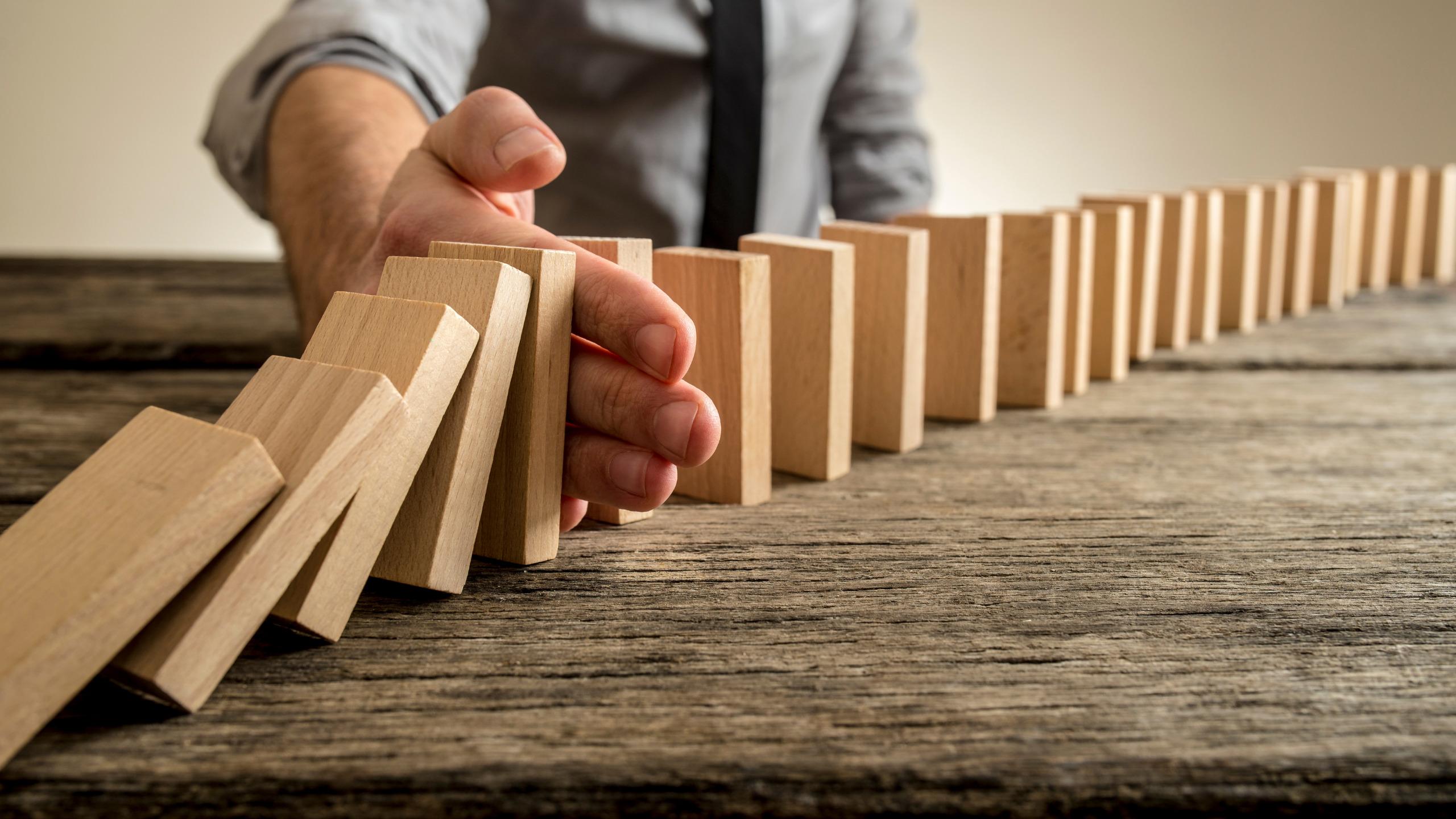My Google Ranking Dropped Dramatically – How to Recover
It’s every SEOs worst nightmare. Your rankings have been going up and your organic traffic has been steadily increasing. Everything is going well.
Then, one day you go to check your keyword rankings and you see a huge drop.
Almost all of your keywords vanish from Google’s search results. Keywords you used to rank in the top position for with a featured snippet, are now buried somewhere on page eight of the search engine results page (SERP).
You’re overcome with a range of emotions from confusion to anger, and even fear if this happened to a client’s website.
No matter how great you are at SEO, the reality is your site can be completely removed from Google’s index at the drop of a dime—just ask Search Engine Land.
And when it happens, it can seem like an impossible challenge to face. But once the reality of your situation starts to settle in, the next question is what do you do about it?
In this guide, we’re going to go over some of the most common reasons your site’s rankings might have dropped dramatically, and the steps you need to take to recover.
1. Google Algorithm Update
This is one of the most common culprits of a sudden drop in rankings. As we all know, Google likes to make changes to its algorithm, and as a result, your rankings might start to shift around.
So one of the first things you should do after noticing a significant drop in your search rankings is to check on the latest SEO news.
We suggest heading to MozCast first. This is Moz’s website that tracks shifts in Google’s search results and displays them in the form of a weather report.

If your drop in rankings correlates with the changes MozCast is showing, it could be an indicator that your site was affected by an algorithm update.
The next step is to check different SEO websites to learn about what the updates might have been targeting. For instance, was it industry specific? Did it target sites with questionable backlinks?
Checking sites like Search Engine Watch and Search Engine Journal can give you insights into any major updates.
Additionally, spend some time looking through Twitter. Whenever there’s a big algorithm update, SEOs head to Twitter to talk about how it impacted their websites.
Dig into the reason behind the algorithm update, then make any necessary changes to your website to correct it.
Keep in mind that after an algorithm update, rankings tend to move around quite a bit. So don’t panic and go into disaster mode right away!
Wait a few days and see where your rankings stand. If they return to normal (or close to it) you can rest easy. But if the negative impact sticks around for a while, then it’s time to take action.
2. You Lost Valuable Backlinks
Despite their ability to be manipulated, backlinks are still one of the top Google ranking factors.

So if there was a significant change to your backlinks, it could have an impact on your rankings.
You can use a tool like Ahrefs or Majestic to track your backlinks. Even if your rankings didn’t drop, it’s good practice to monitor your new and lost backlinks on a regular basis.
When you see new sites linking to you, it gives you an opening to reach out and potentially work together on content and earn more links.
On the flipside, when you see you’ve lost a backlink, you can dig into it and try to find out why it was lost.
In the screenshot below, we can see that CoSchedule lost a link from Convince and Convert because the link was removed for some reason. At that point, CoSchedule could try to find out why the link was removed, and attempt to get it back.

If you see a large number of your backlinks were lost, it should be cause for concern, and it often means there’s an issue with your site.
It could be that someone changed the URL on one of your most linked pages, or worse, your site was hacked and is getting redirected elsewhere.
Whatever the issue, you need to address it immediately if it’s causing a drop in your search rankings.
In addition to a widespread drop in backlinks, you should also narrow in on any high-value backlinks that were lost.
For instance, if your rankings dropped for a specific keyword, check the backlinks for the specific page that was ranking for it.
Did the page lose links from authoritative sites? That could help explain your rankings drop.
In those cases, you can diagnose the problem by looking at the site you lost the link from. Maybe they updated their content and removed your link. Or perhaps they redirected the page to something else, so your link got lost.
When you lose a backlink, do what you can to recover the links and measure whether or not you see an increase in rankings after you recover your position.
3. You Changed the Ranking Page
In some cases, you could be the one to blame for a drop in rankings.
Google’s algorithm can be finicky. The slightest change to your copy or anything on a page that’s ranking can potentially cause you to see a drop.
This is particularly important if multiple people have edit access to the website. Sometimes someone will innocently make changes to a page, not realizing that it could impact SEO.
Some of the most common changes people make to pages that potentially impact rankings are:
- URL: I’ve seen this happen plenty of times. Someone changes the URL of a page without checking with the SEO team or agency, and you don’t find out about it until you see your rankings drop. In order to avoid this, set up strict processes for when, why, and how URLs can be changed.
- Meta title: Changing your meta titles is another thing that can result in a drop in rankings. Remember, search engines use your meta title to understand what a page is about. So if you get a page to rank, the meta title is doing its job. Changing it up opens up the possibility of Google getting confused—especially if keywords were removed from it. Plus, the meta title also impacts your click-through rate (CTR) in search results. So if the new title isn’t as appealing, fewer people will click on it, which can cause your rankings to drop.
- Headings: Your H1’s, H2’s, etc. help Google understand what your content is about. So if you or someone else made changes like removing keywords from your subheadings or the headline of a post, it could be partially to blame for your ranking drops.
- Content: Last but not least, major changes to the copy of the page could be a factor in your decreased Google rankings. Whether you cut some content out, added to it, or modified the existing copy, when Google re-crawls the page it might not find what you wrote as relevant to your target keywords as before.
The main point here is you should use caution when making changes to pages that rank. You never know how it’ll impact your SEO.
4. Manual Penalty
This one is actually a good and a bad thing. With algorithm updates, lost links or changes to your page, you’re often making guesses and assumptions as to why your rankings took a dive. But when you get a manual penalty, Google will notify you.
Manual penalties are Google’s way of letting you know you did something that violates their webmaster quality guidelines. It could be spammy backlinks, thin content or any number of things.
The reason we say this isn’t the worst thing in the world is that you at least have an idea of why your rankings dropped.

Once you’ve identified the “why”, you can follow Google’s recommendations to fix the problem. That process goes beyond the scope of this article, but you can check out this guide for more info.
Unfortunately, there are horror stories of people having to completely scrap their websites and start over because they were unable to recover from manual actions from Google. But in many cases, you can recover—it just might take some time.
5. A Rise in Competition
Last but not least, in some instances, you could see a drop in rankings simply because your competitors are “out-SEOing” you.
Remember, whenever one site’s rankings increase, it means at least one other site’s rankings decreased. You might be one of those sites.
Unless there’s a wide-scale effort to overtake you for your target keywords, the ranking decreases shouldn’t be too drastic. But if the rankings that drop are for some of your most valuable keywords and pages, it can make a significant impact.
There is a direct correlation between your Google position and CTR.
As you can see from the chart below, the top position in Google has an average CTR of 20.5. If your rankings drop to the second position, your CTR is almost cut in half to 13.2%.

In order to keep an eye on your competitor’s rankings, it’s crucial to monitor your keyword rankings.
You can use Wincher to track how your rankings stack up against your competitors. If you notice them gaining steam on your target keywords, take a look at their ranking page and see if there’s anything they’re doing well that you aren’t.
But like you learned in #3 on this list, be careful not to panic too much and make changes to your site that do more harm than good.
Google Ranking Drops Aren’t the End of Your Site
As frightening and stressful as it may be, when your Google rankings drop dramatically, it doesn’t mean you should give up hope.
Oftentimes the problem can be fixed and your rankings can get restored. You just have to know what to look for.











